Spatial variation in substrate composition, coral diversity and recruitment on Maldivian coral reefs, ten years since the 1997-98 mass bleaching event
2008
Kelly Timmins (MSc Ecology - Bangor University)
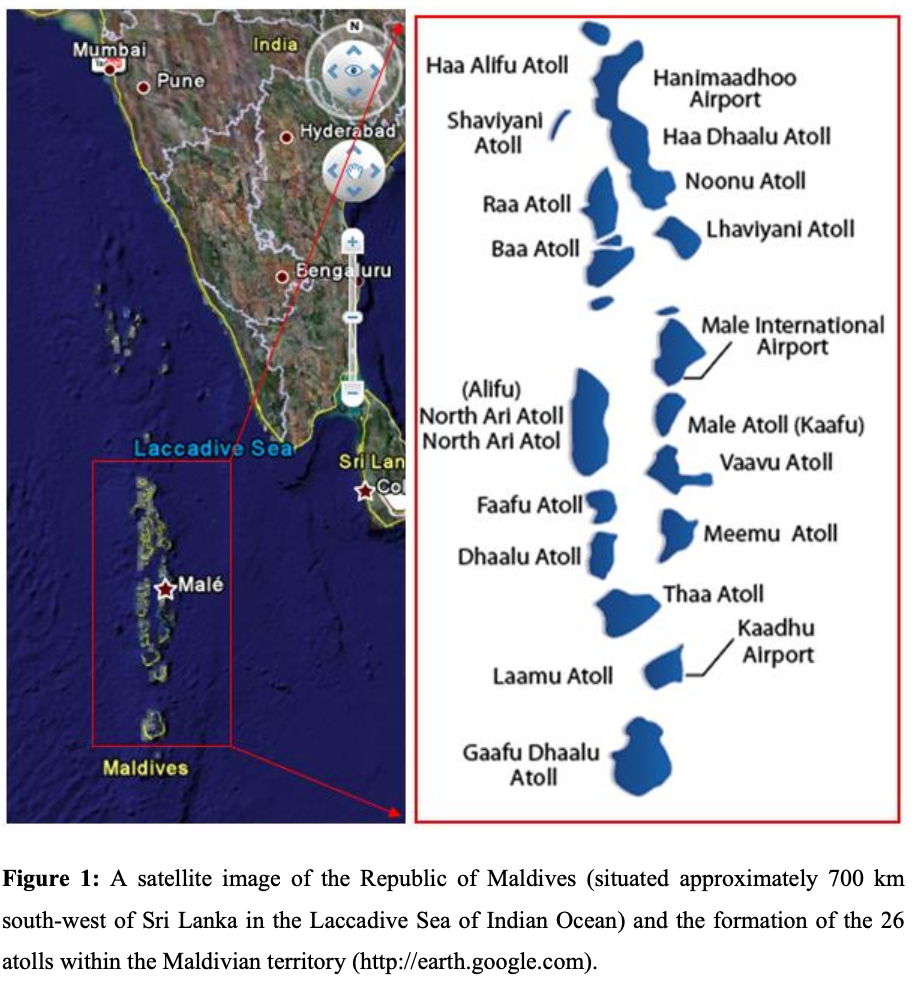
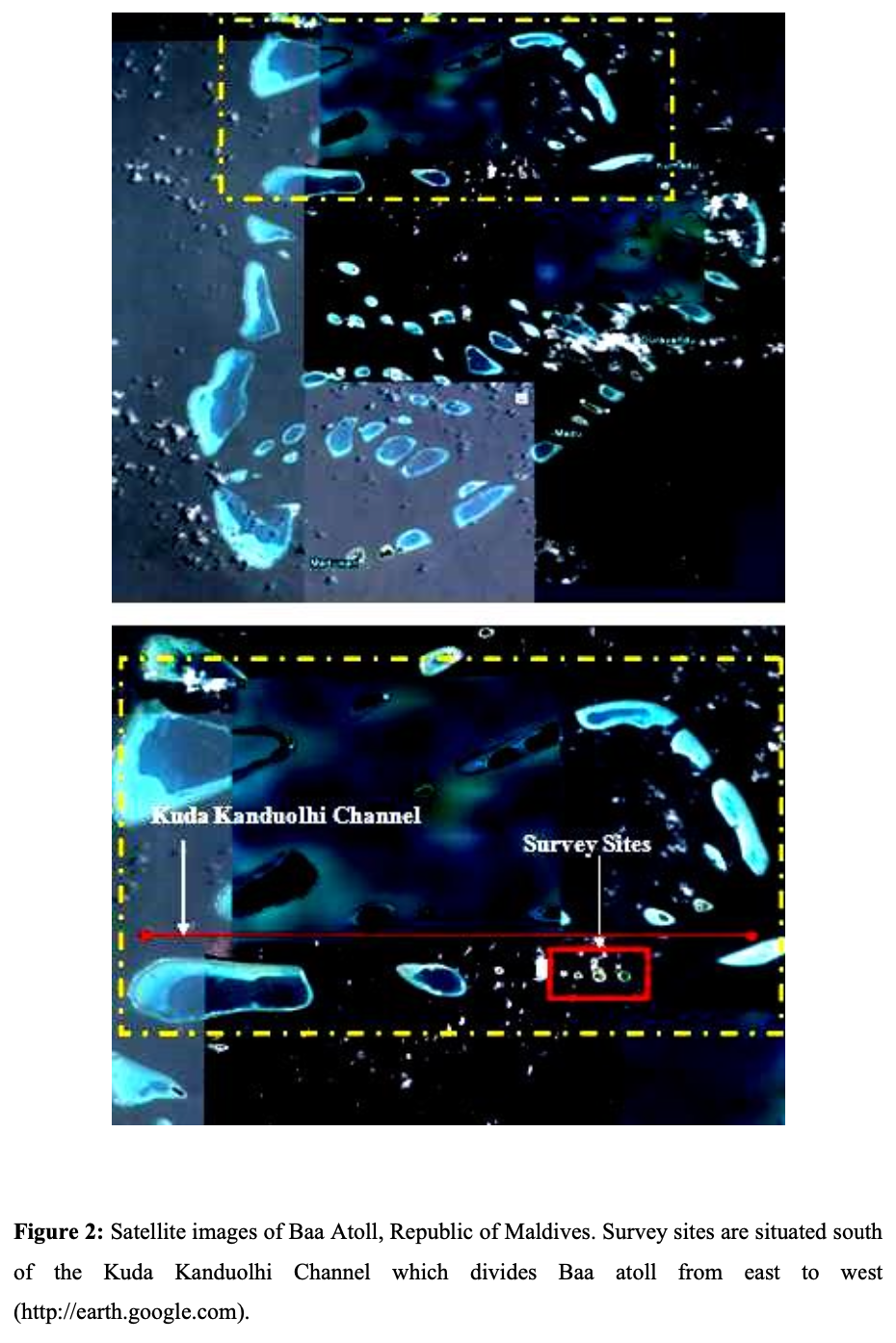
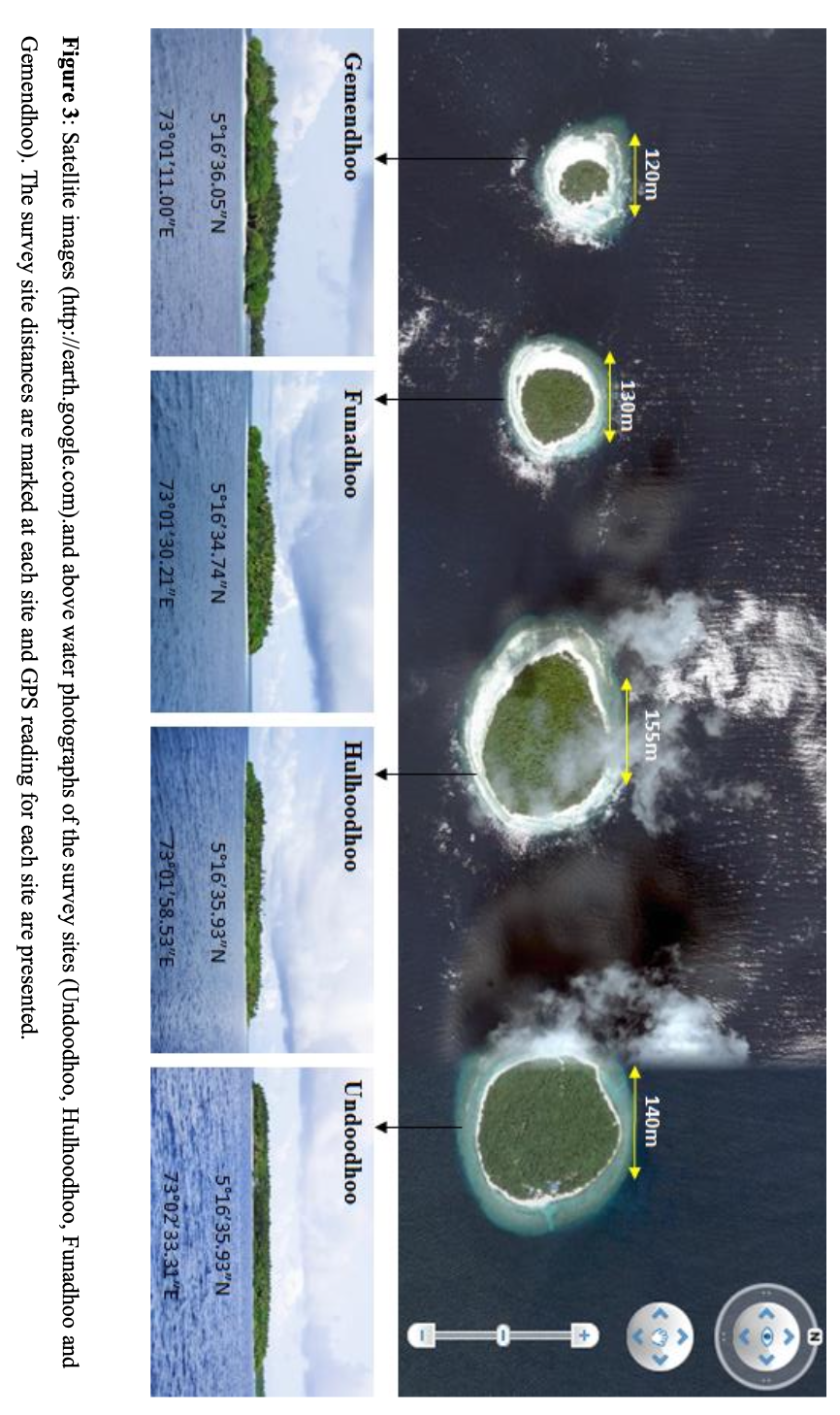
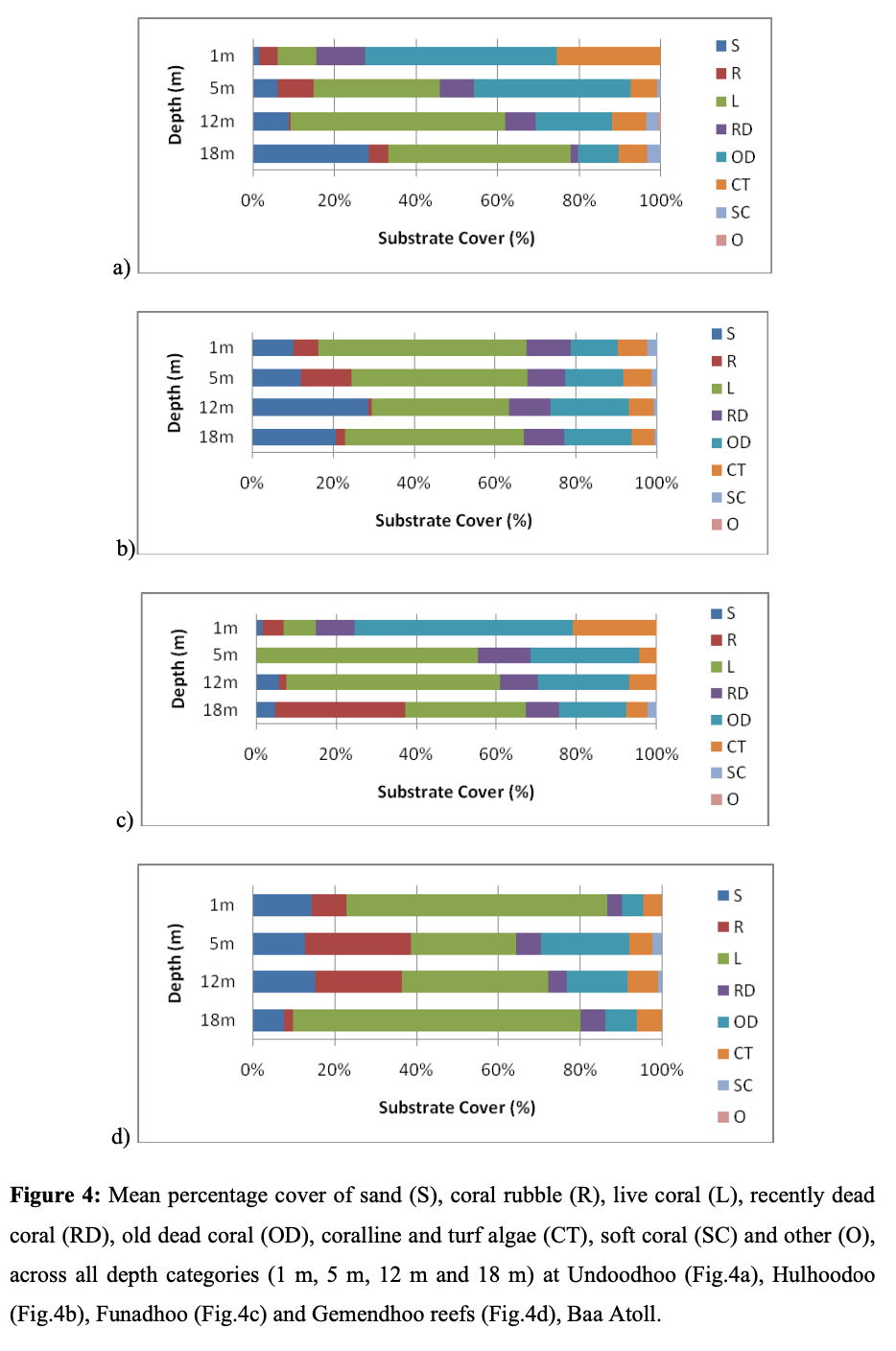
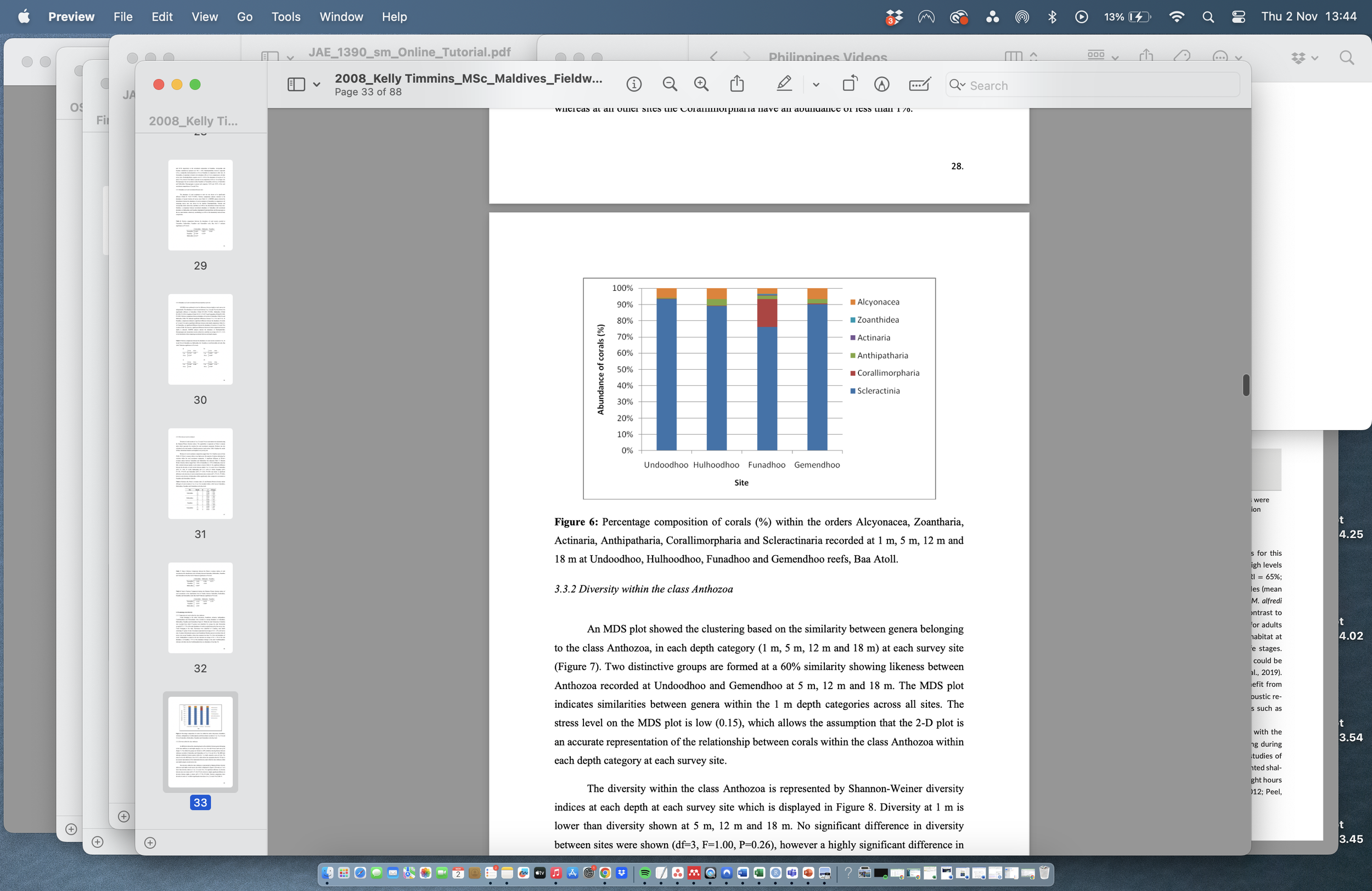
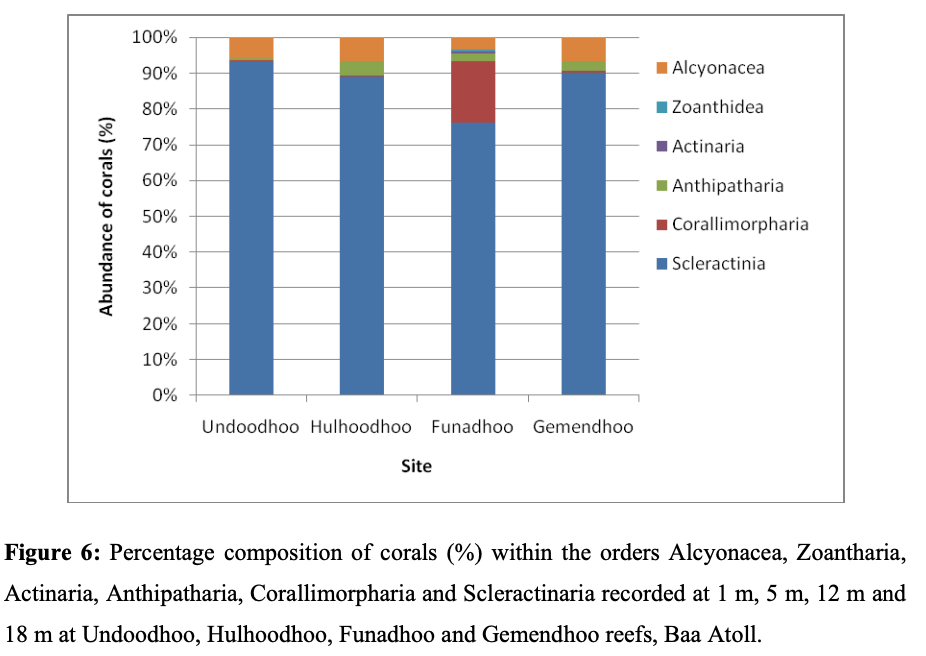
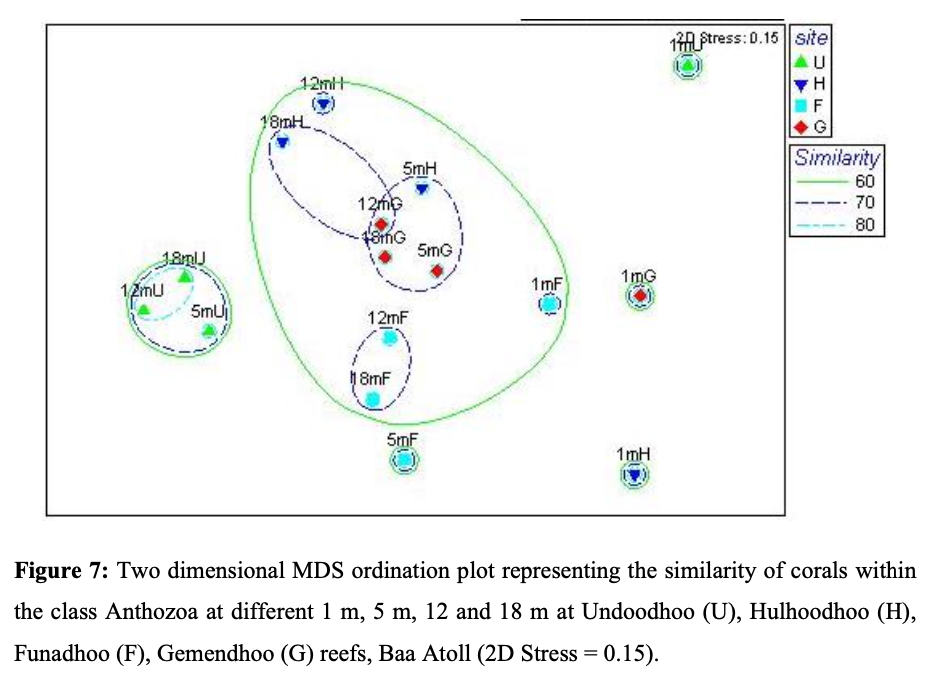
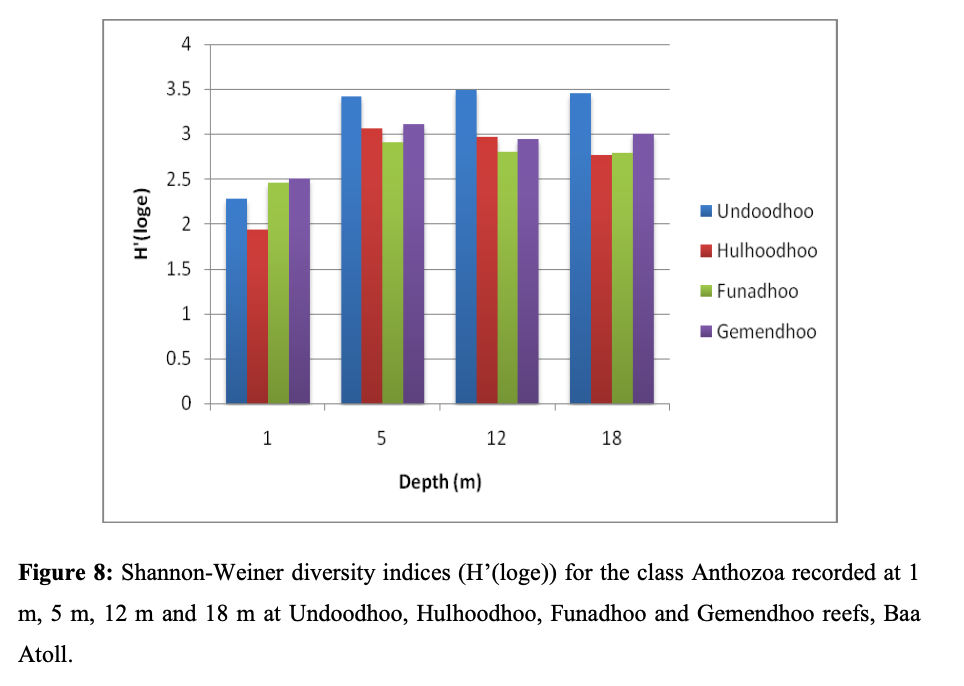
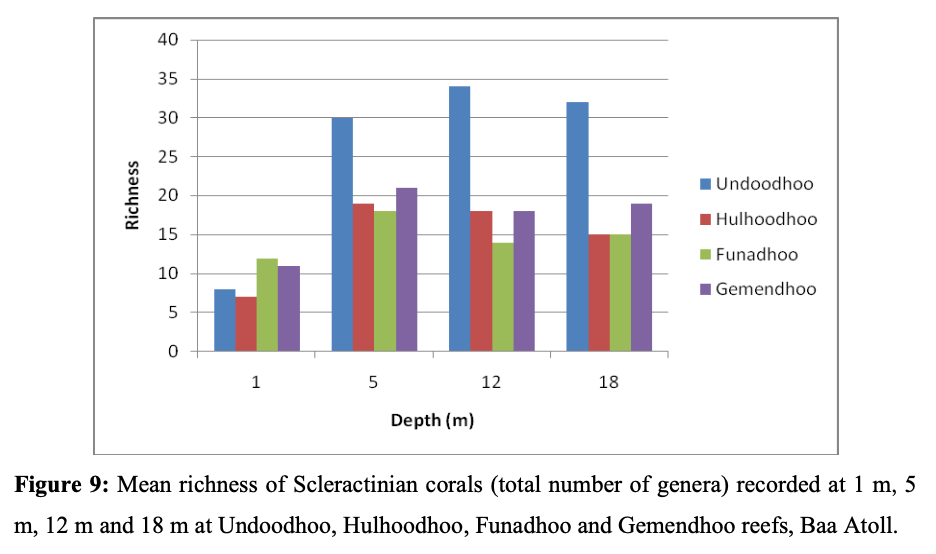
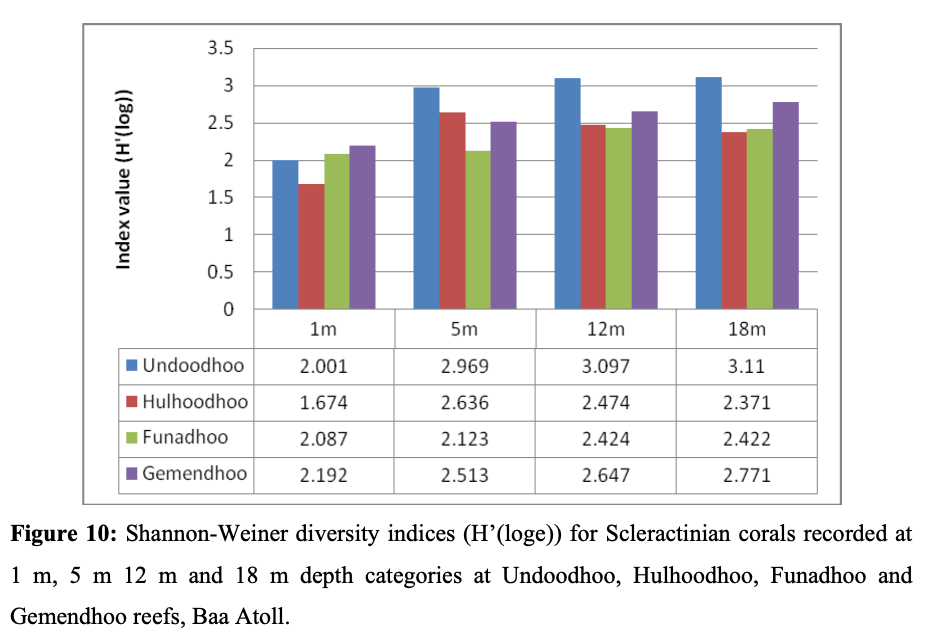
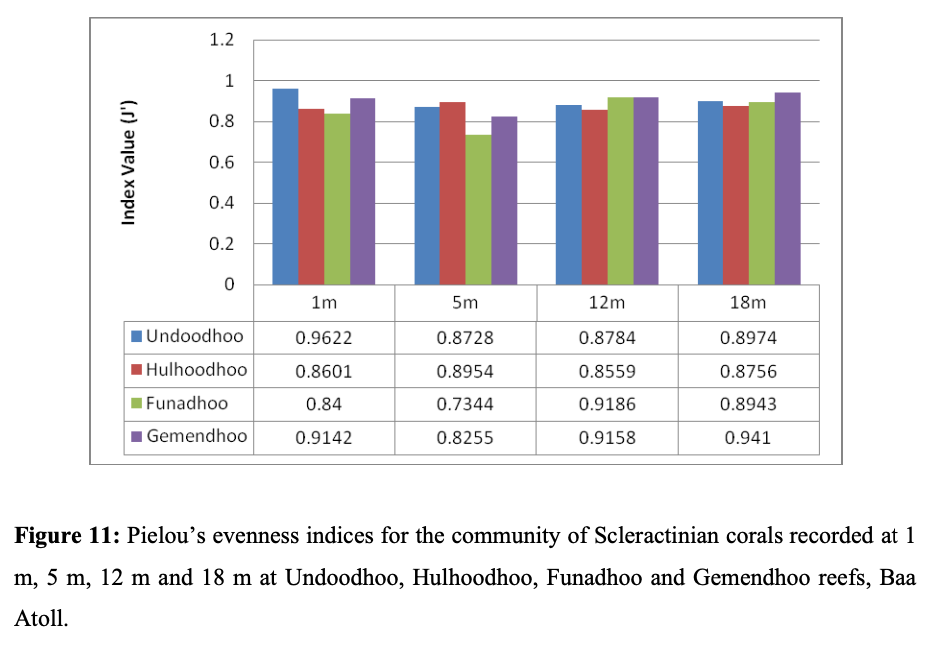
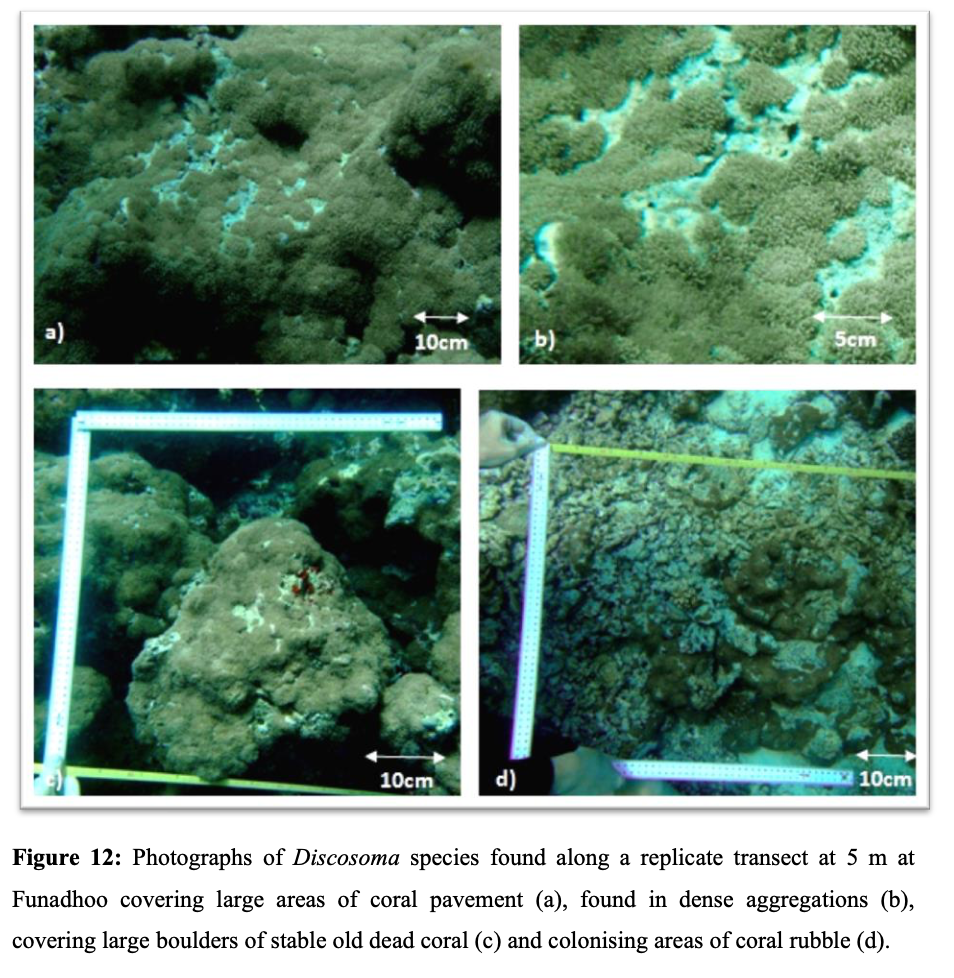
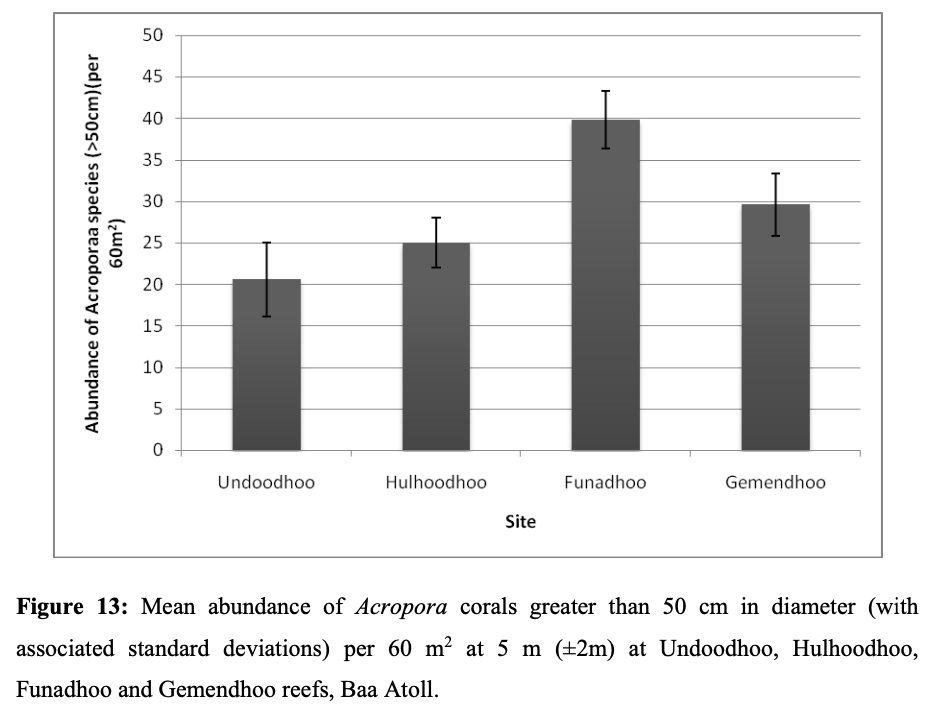
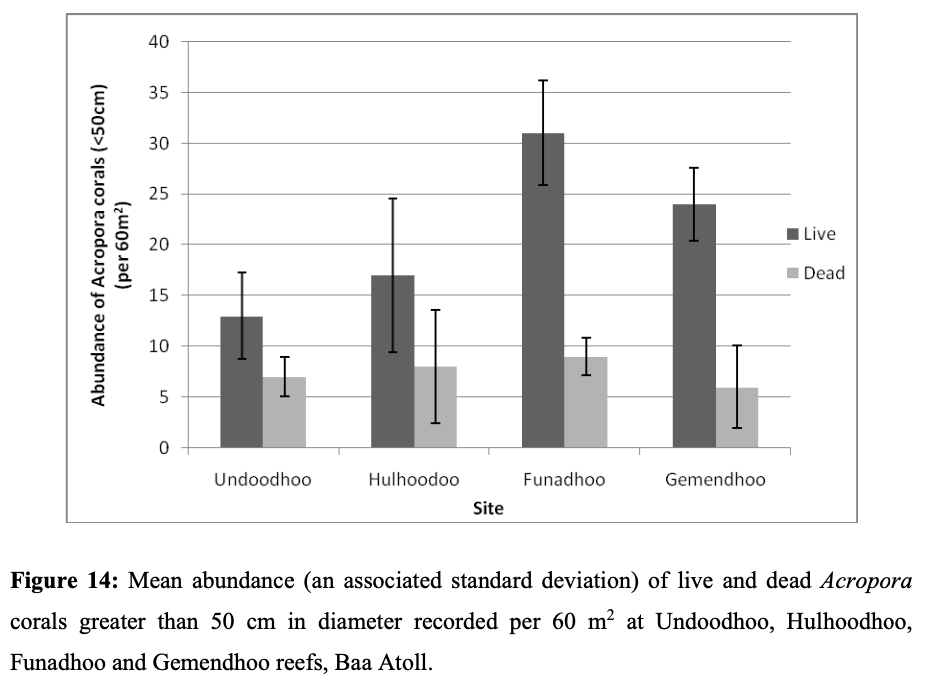
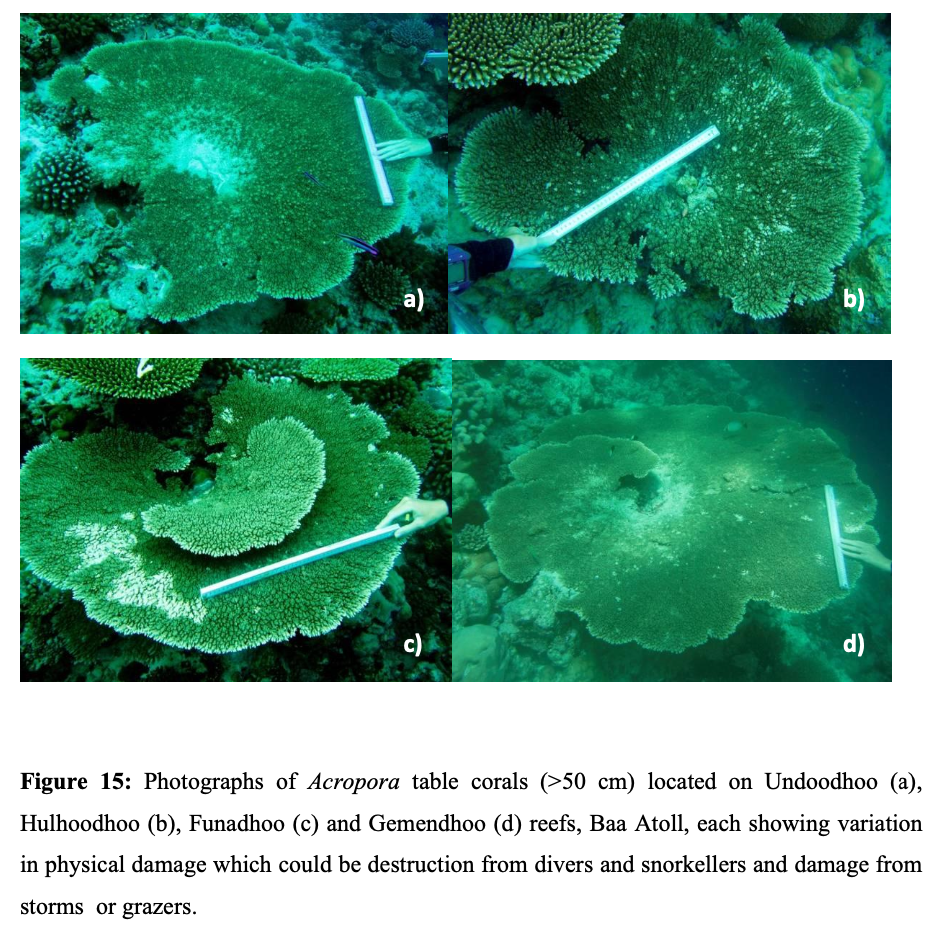
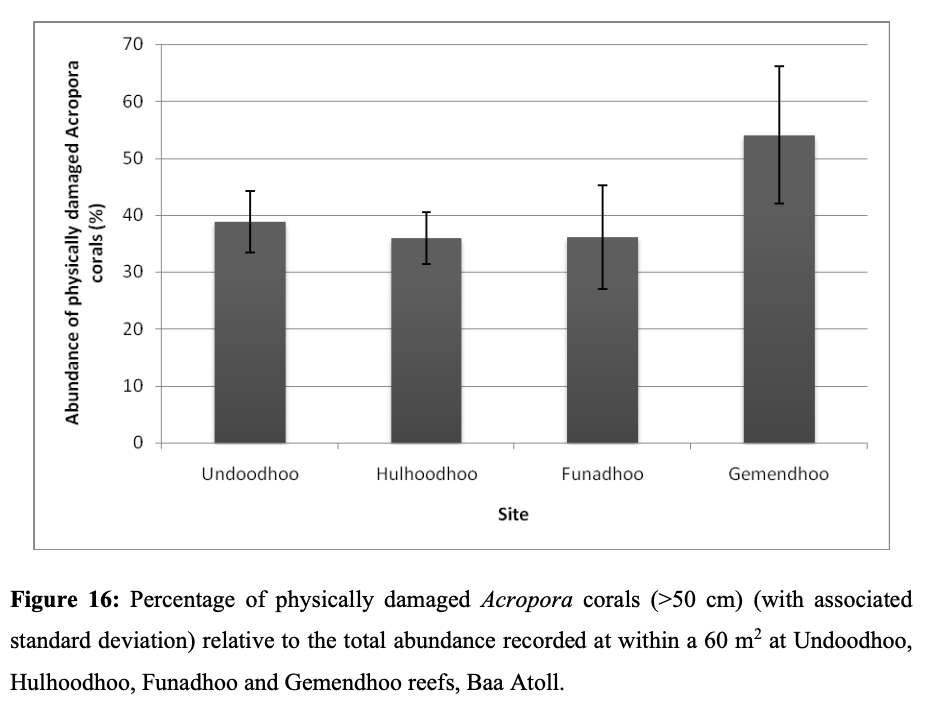
Summary: Coral reefs, known for their biodiversity and ecological importance, are threatened by rising sea surface temperatures, causing mass bleaching and extensive coral loss. Recovery estimates are crucial for reef conservation. Studies have shown severe coral cover declines, raising questions about their ability to rebound from disturbances. This study investigates reef recovery in the Maldives and contributes to ongoing global efforts to monitor and protect coral reefs from the impacts of climate change.
Introduction
“Coral reefs are renowned for their complexity, biological diversity and high productivity, playing a pivotal role in shaping the ecosystems that dominate tropical oceans. The importance of coral reefs as a crucial source of income and resources reaffirms their economic and ecological significance to humanity. Correlative field studies have revealed that elevated sea surface temperatures (SSTs) have been responsible for triggering mass bleaching events (Glynn, 1993; Brown, 1997a), leading to extensive coral mortality (Glynn, 1993; Goreau et al, 2000) and ecological changes (McClanahan, 2000). The substantial loss of coral reefs following the 1997-98 mass bleaching event has been well documented (Wilkinson, 2002). Estimations of amounts and rates of subsequent recovery are important to predict future reef condition and to conservation management of the reef ecosystems (McClanahan et al, 2007). Recent surveys have highlighted extreme declines in coral cover leading to debates concerning the ability of reefs to recover from mass disturbance (Bruno and Selig, 2007; McClanahan et al, 2007). Evidence from the past 20 years suggests that corals and their zooxanthellae are not able to acclimatise or adapt fast enough to the short, sporadic thermal events typical of recent bleaching episodes (Hoegh-Guldberg, 1999). Globally, the current focus is to document the changes in coral reef assemblages through continuous monitoring at varying spatial and temporal scales. The present study aims to examine the extent of reef recovery in the Maldives.”
Author Affiliations
Bangor University
The Manta Trust
